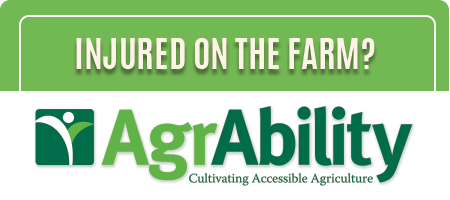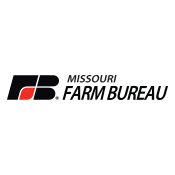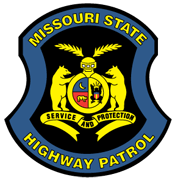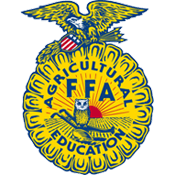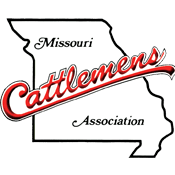Implements
Implements help farmers get the job done, whether that be planting, baling hay or spraying crops. However, farmers should take caution when working with and towing implements.
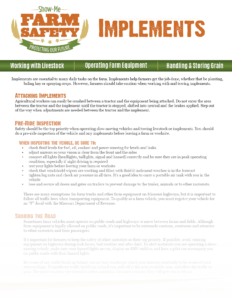
Click to download our handout
Attaching Implements
Agricultural workers can easily be crushed between a tractor and the equipment being attached. Do not enter the area between the tractor and the implement until the tractor is stopped, shifted into neutral and the brakes applied. Step out of the way when adjustments are needed between the tractor and the implement.
Pre-ride Inspection
Safety should be the top priority when operating slow-moving vehicles and towing livestock or implements. You should do a pre-ride inspection of the vehicle and any implements before leaving a farm or worksite.
When inspecting the vehicle, be sure to:
- Check fluid levels for fuel, oil and coolant, and power steering for levels and leaks.
- Adjust mirrors so your vision is clear from the front and the sides.
- Connect all lights (headlights, tail lights, signal and hazard) correctly and be sure they are in peak operating condition, especially if night driving is required.
- Test your lights before leaving your farm or worksite.
- Check that windshield wipers are working and filled with fluid if inclement weather is in the forecast.
- Tighten lug nuts and check air pressure in all tires. It’s a good idea to carry a portable air tank with you in the vehicle.
- Close and secure all doors and gates on trailers to prevent damage to the trailer, animals or to other motorists.
There are many exemptions for farm trucks and other farm equipment on Missouri highways, but it is important to follow all traffic laws when transporting equipment. To qualify as a farm vehicle, you must register your vehicle for an “F” decal with the Missouri Department of Revenue. See Section 301.030.3, RSMo.
Sharing the Road
Sometimes farm vehicles must operate on public roads and highways to move between farms and fields. Although farm equipment is legally allowed on public roads, it’s important to be extremely cautious, courteous and attentive to other motorists and their passengers.
It’s important for farmers to keep the safety of other motorists as their top priority. If possible, avoid running equipment on highways during rush hours, bad weather and after dark. To alert motorists you are operating a slow-moving vehicle, make sure your hazard lights are on, display an SMV emblem and have a pilot car accompany you on public roads with their hazard lights.
Be aware of any traffic build up behind you on busy roadways; check your mirrors constantly to be aware of your surroundings. If significant traffic builds up behind you, pull off at the next available area, and allow the traffic to pass. The more courtesy you extend to other motorists, the more courtesy they will give you in return.
Display Slow-Moving Vehicle Emblem
Display a slow-moving vehicle (SMV) emblem on either the towing vehicle or the implement being towed to alert motorists. Missouri law requires slow-moving vehicles, designed for use or normally operated at speeds less than 25 miles per hour, to have an SMV emblem displayed if operating on a public highway after sunset until 30 minutes before sunrise.
Use Appropriate Lights and Signals
When driving on public roads, use the appropriate lights on the vehicles and implements being transported. Farm tractors are required to have two forward-facing headlights and a red tail light that is visible for 500 feet under clear weather conditions. Tractors and farm trucks are required to use hazard lights (flashers) when operating on public roads. Equipment towed should have two red reflectors on both sides of the equipment.
Farmers should be courteous to other motorists when driving on public roads. Give the proper signal at least 100 feet before turning. If your equipment does not have working turn signals, learn the correct hand signals when changing lanes, making a turn, pulling onto the road or slowing down to stop.
Resources
- Show-Me Farm Safety Highway Safety Slick
- Show-Me Farm Safety Implements Handout
- Highway Safety for Missouri Farm Trucks
- Farm Safety: A safe farmer is a successful farmer brochure
- Size and Weights brochure
- Large Round Bales: Safety
- National Healthy Worksite Program
- Agricultural Safety Topics
- Agricultural Operations
- Machine Safety Walkthrough

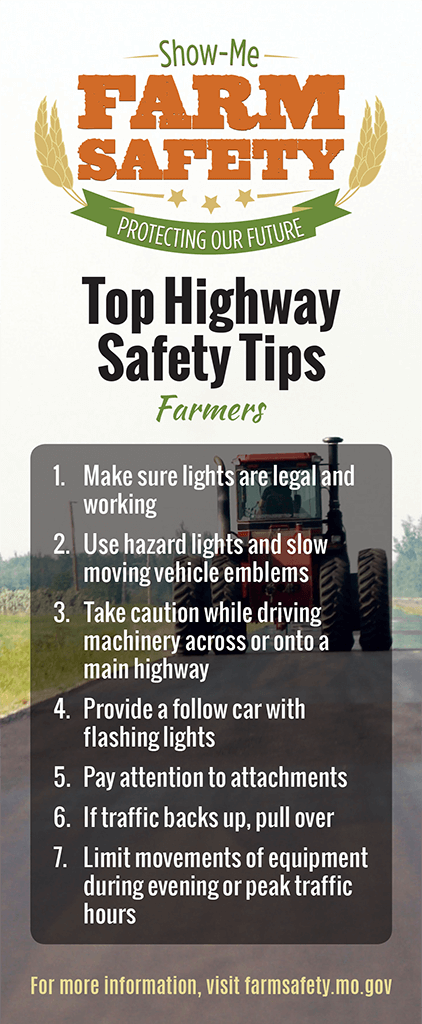
 Implements
Implements Power Take-Off (PTO)
Power Take-Off (PTO) Lawn Mowers
Lawn Mowers All-Terrain Vehicles
All-Terrain Vehicles Electricity
Electricity